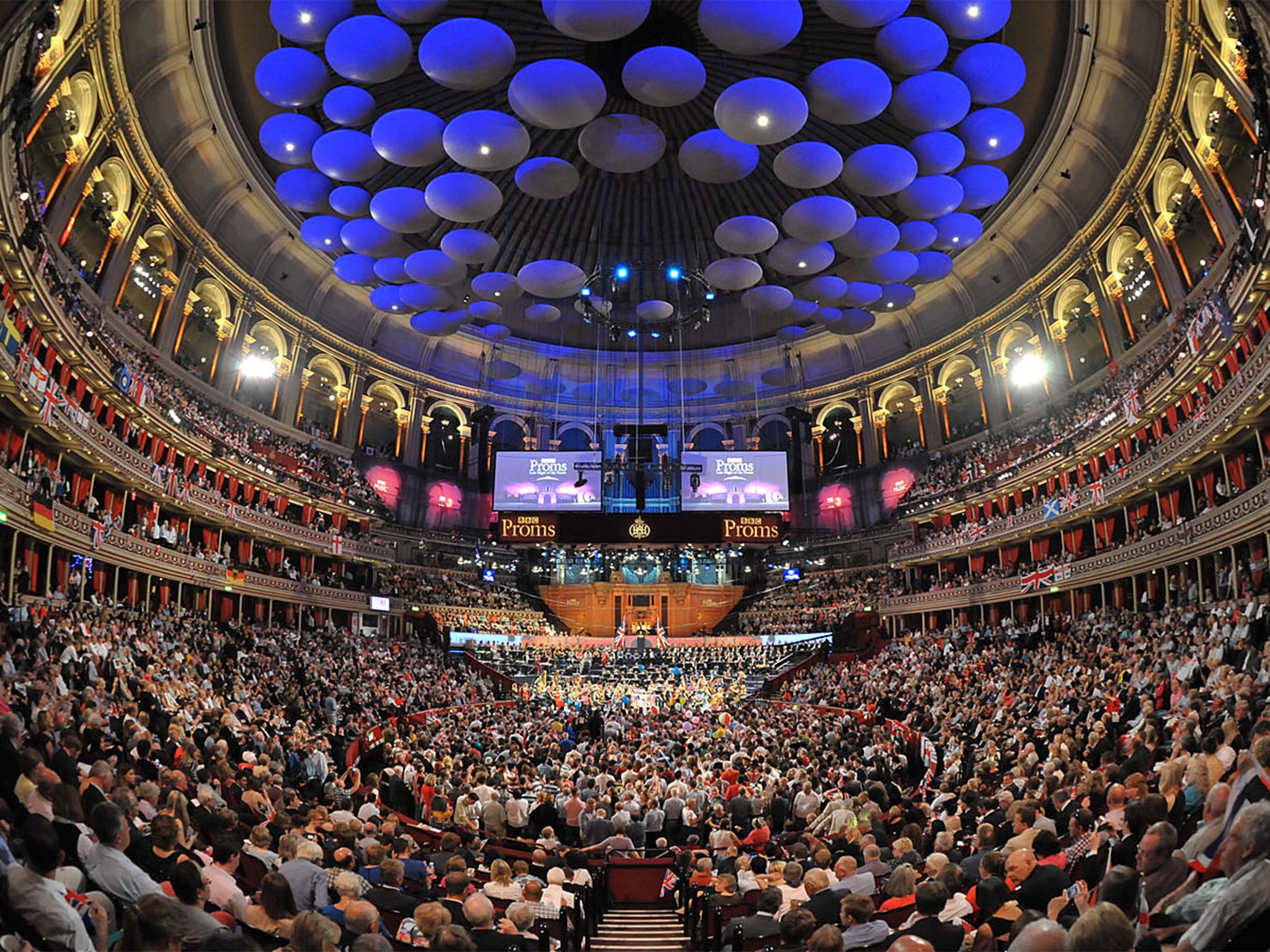The Proms must be dragged into the 21st century
The new chief should introduce screens and conductor chat


The Proms has a new director. David Pickard, currently artistic director at the Glyndebourne Opera Festival, will take over the Proms later this year. He will report to the controller of BBC Radio 3, Alan Davey.
My first question is why? I’d have thought that the head of the world’s biggest music festival shouldn’t really have to report to anyone. But such thinking might be anathema to BBC bureaucracy.
Anyway, there’s more important stuff for Mr Pickard to concern himself with. The Proms, with its justly celebrated £5 standing tickets, have already done much to bring in new, younger audiences to classical music. But there shouldn’t be too much backslapping. Those audiences are still overwhelmingly white, and overwhelmingly middle-class. No doubt, Mr Pickard, who did widen access at Glyndebourne, will tweak the Proms to make them even more accessible. But, why not forget about tweaking and go for some truly radical action instead?
First off, he could introduce screens at the Royal Albert Hall so that the audience could focus on the conductor, soloist and individual memebers of the orchestra. At present one sees plenty of shots of the conductor’s impassioned face if one watches a Prom on TV, but the audience at the actual event has to gaze at the back of the conductor’s head.
Next, Mr Pickard could ask every conductor (and perhaps some soloists) to introduce the night’s programme. It is a privilege and a thrill for an audience to have the conductor actually talk to them. Yet it happens incredibly rarely, most years only on the Last Night of the Proms. A few words from a conductor would give newcomers to a work a real insight into it, and an understanding of what the conductor is trying to achieve. At the same time, please Mr Pickard tell the conductors to inform the audience what the the encore is that they are about to play or have just played. The encores are not listed in the programme, and so often I have been to a Prom and left with no idea of what the encore was that I have just heard.
I’m not saying that the Proms should go as far as the Bristol Proms (no relation) which spectacularly brings classical music to new audiences with light shows and an almost total disregard for the traditional format of a classical concert.
But I do hope that Mr Pickard will do as his predecessor Roger Wright did, and reassure audiences that they can clap between movements and not feel intimidated by the stuffy conventions that still dominate at classical concerts. He will, I hope, also bring in the world’s greatest orchestras (of which there seem to be fewer in this year’s Proms) and not get too obsessed with paying homage to composer anniversaries (of which there are too many in this year’s Proms).
Most of all, though, he should be prepared to rethink the traditional structure and trappings of a Proms concert, and realise that even at the genuinely atmospheric Proms, there is a need for changes that will encourage a much wider demographic to enjoy classical music.
Workers of the arts world unite
Last week the tour guides at Shakespeare’s Globe went on strike over pay. This week there was a walk-out by workers at the National Gallery over moves to ‘outsource’ security guards and other staff dealing with visitors to a private company. Previously staff had actually booed the gallery’s director, Nicholas Penny, at a meeting between staff and management. I’m not sure which august arts institution will suffer industrial action next week. But it does seem that while the arts are always quick to condemn or satirise the treatment of workers by private businesses, some leading cultural venues haven’t quite mastered the art of industrial harmony themselves.
When Putin’s minister met Paul McCartney
Russia’s President Putin is, it seems, a Beatles fan, as are several of his ministers. At his London concert this week, Paul McCartney told how he performed in Moscow’s Red Square, and afterwards Putin and several of his ministers came backstage. Russia’s defence minister told McCartney that The Beatles’ "Love Me Do" was the first record he bought. I particularly liked the story of another minister informing McCartney that he had learned his English from Beatles’ songs. He then attempted to prove the point, shaking Paul McCartney’s hand, and saying proudly: “Hello Goodbye.”
d.lister@independent.co.uk
twitter.com/davidlister1

Join our commenting forum
Join thought-provoking conversations, follow other Independent readers and see their replies